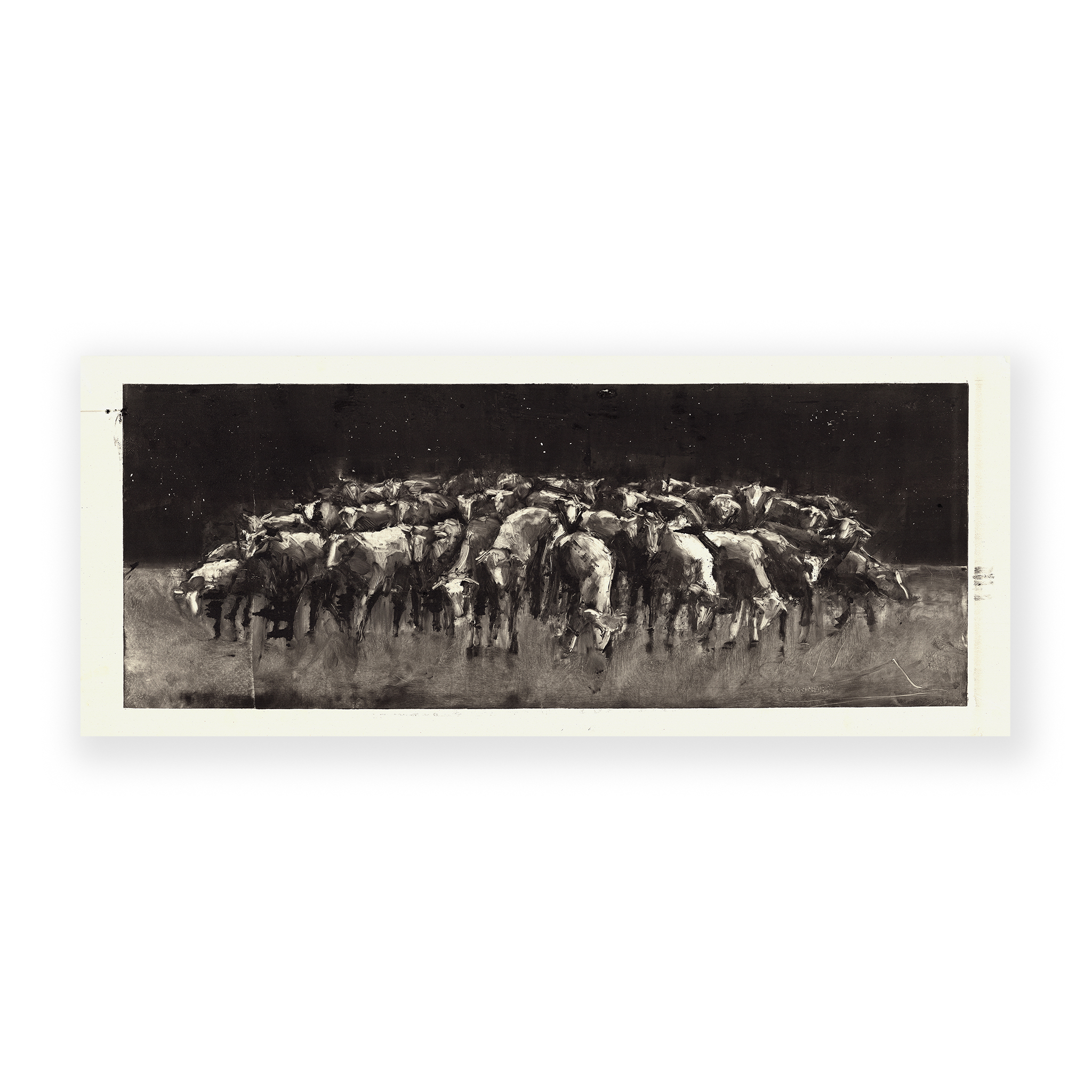INSURRECTA XXI (OVEJAS)
Description
BORONDO – Insurrecta XXI (Ovejas)
Monotype on wallpaper
145 x 68 cm, 2020
(Frame realized by the artist included)
Artist info
Borondo
More info
Acción Cultural Española (AC / E) and the Municipality of Segovia, in collaboration with Galleria Varsi, present, at “La Alhóndiga”, the exhibition by Gonzalo Borondo “Insurrecta – estudios para una historia de rebelión”. The show collects twenty-seven monotypes – part of the studies created by the artist for the “Insurrecta” project, presented in Segovia to commemorate the 500th anniversary of the “Revuelta de los comuneros”.
To describe his concept of rebellion, Borondo elects monotype as his medium, a hybrid between painting and printing, imagining to distort its “original” substance, and to reproduce the artworks in scale on disused advertising billboards, with the support of the Municipality of Segovia. This choice is inspired by Goya’s series “Los caprichos” and “Los desastres de la guerra”. Borondo is interested in Goya’s intent to bring these topics closer to the public, and thus selects engraving as his narrative medium. With the pandemic, the contents of the project are modified by new ideas that are shaped on paper and in the Segovian landscape.
Initially Borondo’s prints exalt revolt as an essential dimension of man, an aggressive motion necessary for the transformation of society and the evolution of the individual. Inverted crowns, scenes of struggle, fragments of fervor and destruction. The monotypes then reflect the isolation imposed by the lockdown, during which Borondo is confined to his studio without being able to constantly bond with his sites. The memory of the past connects with the new condition and his works now include balconies and windows alive with life, a distant crowd, people together but desolate. As a consequence of this confinement, the cities empty, animals and plants take back urban spaces, fill the void and invade it. This phenomenon attracts the artist who has always been interested in the relationship between man and his environment: this metaphor becomes the basic theme for “Insurrecta. The rebels are animals that struggle to free themselves from captivity and remission, to regain possession of their instincts and of nature. Borondo chooses the bull, the horse and the dog as symbolic animals for this revolt, animals always close to man but at the same time with an impulsive temperament that can suddenly lead to rebellion.
When Borondo’s work is almost completed, this new poetic direction – combined with the awareness that this will be the first project seen by people after months of imprisonment – leads him to completely transform “Insurrecta”. The artist feels he wants to offer the public a less forceful vision and eliminates from the project most of the highly dramatic works openly connected to the pandemic, choosing to direct his production towards the new metaphor. He also decides to add color and, once finally free to physically experience space, to work directly on advertising media, integrating different techniques and materials (painting, cyanotype, sculpture, animation, engraving, paper, iron …), and structuring each work as an individual experience. In June 2020 he presents “Insurrecta”.
The suffering of the revolt mixes with the landscape: it appears in its full intensity but at the same time becomes tolerable, sweeter, aware of being collective.
“Insurrecta – estudios para una historia de rebelión” brings forth a creative process lasted four months, which makes Borondo aware that “his” revolt lies in creation rather than criticism, in the continuous and necessary effort to recreate the world.
Secure payments
Pay in monthly installments
We ship all over the world
SUPPORT ON PURCHASES
MORE Borondo
Go to artist page-

-

-

800,00€
Buy now



















